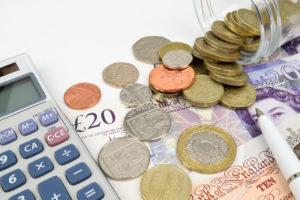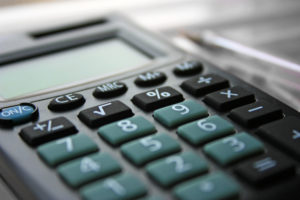
Do lease car payments include interest?
Your monthly lease fee is made up of a number of elements. In this article, we’ll take you through what these are. Answering the question do lease car payments include interest?
What is a lease payment?
A lease payment is what you pay on a monthly basis for the use of your leased vehicle. It is calculated by taking the total amount payable on the lease and dividing it by the number of months in the contract.
How is a lease payment calculated?
 The largest part of the lease payment is covering depreciation of the vehicle during the course of your lease. The depreciation is calculated by using historical data on how that make or shape of car has kept its value over the same time period, plus many other factors.
The largest part of the lease payment is covering depreciation of the vehicle during the course of your lease. The depreciation is calculated by using historical data on how that make or shape of car has kept its value over the same time period, plus many other factors.
Then comes the interest payment. This is where the lease company makes their profit. You will be charged interest on the cost of the vehicle plus the expected value of the vehicle at the end of your lease.
Finally VAT. Your lease payment will be subject to VAT of 20%. If you are a business you can read about claiming back VAT on your car lease here.
Then, the total sum of all of the above is calculated and your initial payment contribution deducted. The remaining amount is split into monthly instalments which are your lease payments.
Why do I need to pay interest on my lease car?
When you place an order for a leased vehicle the lease company goes to the dealership and ‘buys’ the vehicle you’ve chosen. They pay a cash price for the car, plus registration and fees. The lease company now has the rights to collect lease payments and obtain the car back at the end of the contract term. The lease company have made an investment in the vehicle and this won’t be recouped until they receive the vehicle back. Interest is charged to compensate the lease company for lending you it’s capital investment during the lease term.
Will I be told what rate of interest I’ll be paying?
Lease car interest is different to car loan interest. On a car loan, you are informed of the rate of interest you’ll be paying on your repayments. For a lease car, the rate is not disclosed. Usually, the rate of interest is comparable to a new car interest rate for somebody with good credit. Typically only customers with good credit would be accepted for a lease car..
Can I lease a car if I have bad credit?
How is the interest calculated?
 While the rate is typically the same as a new car purchase the way the lease is structured is different. When purchasing a new car on finance your monthly payments contribute to a portion of the purchase price plus interest. The payments take the balance down to zero and the interest becomes smaller as the balance is reduced.
While the rate is typically the same as a new car purchase the way the lease is structured is different. When purchasing a new car on finance your monthly payments contribute to a portion of the purchase price plus interest. The payments take the balance down to zero and the interest becomes smaller as the balance is reduced.
Lease cars are different. You would not be paying for the full cost of the car. This means the monthly cost is much less than if you were purchasing the car. The lease payments just cover depreciation and interest. The depreciation value does not change throughout the course of your contract so you will always be paying interest on the same value. This results in more interest being charged overall.
So is leasing a good deal?
It depends on what you want from a lease car. If you appreciate low monthly payments, flexibility in options and the chance to drive a new car every 3 years then leasing is a great deal. But, that is not what leasing is designed for. Leasing is designed to offer flexibility and low monthly payments. It makes driving a brand new car accessible for people without the risk of owning a vehicle that has depreciated in value exponentially over the course of the contract.
How do I pay for my lease car?
The first payment you’ll need to make on your lease car is the initial payment. This is sometimes payable at the time of ordering. Other lease companies will collect the initial payment a week before delivery. Some will collect payment by direct debit on delivery date or shortly after. It’s best to check with your lease provider on this. An initial payment is a bit like a deposit, it secures the use of the vehicle and allows the lease company to place the order on your car. This can be made in the dealership by cash, card or via BACS transfer. Then your monthly payments will commence via direct debit at a pre-agreed date.
What happens if I miss a payment on my lease contract?
Missing a payment on your lease agreement is as serious as missing any other contracted payment type. Failure to meet a payment could result in additional fees being applied to your account. The payment will need to be settled as soon as possible. If after a month the payment hasn’t been made then the direct debit will be altered to take the missed payment, plus the current payment, plus fees. These fees will usually be taken with your next payment. If you miss payments on an ongoing basis your credit score would be affected and the car could be repossessed.
Will I be charged extra interest if I miss a payment on my lease contract?
The simple answer is no. You will not be charged additional interest if you miss a payment on your lease car. You will, however, be subjected to a late payment fee. Be mindful that missing just one payment on a lease contract can result in a negative credit score.
How many payments can be missed before my car is repossessed?
There is a common misconception that car finance companies need to wait until you are at least 3 months overdue on payments before they repossess the car. This is a myth. In fact, the lease company can order a repossession against you even if you have only missed one payment. Not that this happens often, but it’s worth knowing that you are borrowing property that belongs to the lease company. Because of that, they can repossess the car at any time if there’s a missing payment.
Now that you have all the information you need about whether lease car payments include interest, you can budget accordingly. You can also use this article to help ensure you minimise the risk of missing your payments. This information also helps you understand the reasons why lease companies charge interest, how lease payments are calculated and why leasing a car is the most flexible and low-cost option of driving a new car.
